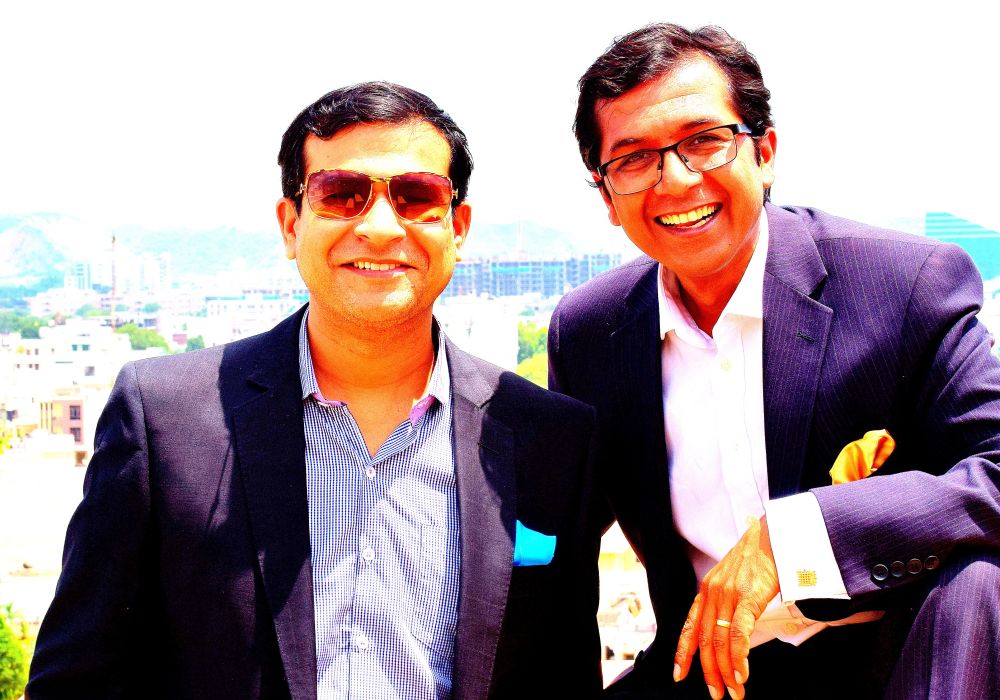Hitchhiking.
The term brings up images of a dusty traveller standing in the middle of a highway, thumb stuck out, backpack placed against the side of a highway marker waiting for the kindness of a passing car. It’s an idealistic image, isn’t it? When one thinks of hitchhiking, it’s always the passenger flagging a four-wheeler on a long trip in the middle of nowhere, or if your own vehicle breaks down in the middle and you need help getting to the nearest garage.
The number of four wheelers operating in India are 22 Mn, as per this report from the Ministry of Transport. And there are about 5 Mn taxis operating in India, in total – this includes taxis plying with cab aggregators such as Ola, Uber, Meru and private services. In stark contrast, according to a Credit Suisse report, there are about 155 Mn two wheelers running on Indian roads, especially in Tier II and Tier III cities, where cars are still considered a family luxury and cab-hailing is considered an expensive proposition. The disparity in numbers between four wheelers and two wheelers is 6x-7x.
With traffic congestion a perennial problem all over India, and a huge number of two wheelers (with an available empty seat) available for the taking, two corporate honchos Shashank Kansal and Ruchir Gupta created a bike pooling app – BYKUP. BYKUP’s basic USP is that it connects a biker and a rider on prescribed city commute routes.
The biker gets to ‘offer a lift’ and the rider ‘accepts the lift’ through geo-mapping algorithms, as per the website – turning the ancient mode of hitchhiking on its head and giving it a tech twist.
The Jaipur-based company managed to raise $200K in angel funding in two tranches of $100K in January and October 2016 respectively, and has a team of 14 , at the moment. BYKUP went live on the beta version in Android in the Tier II town of Jaipur and Hyderabad in August 2016 and expanded to Pune later.
“First of all, in Latin America and Spain, hitchhikers don’t draw their thumb up to signal for a ride. They keep it sideways. It signifies their status as a hitchhiker. So that is the first myth busted,” begins Shashank with a chuckle. “And then, we call it bike pooling because the idea of the app depends on making daily commuting easy for regular travellers. It’s not random hitchhiking. We want BYKUP to become your habitual transport,” adds Ruchir.
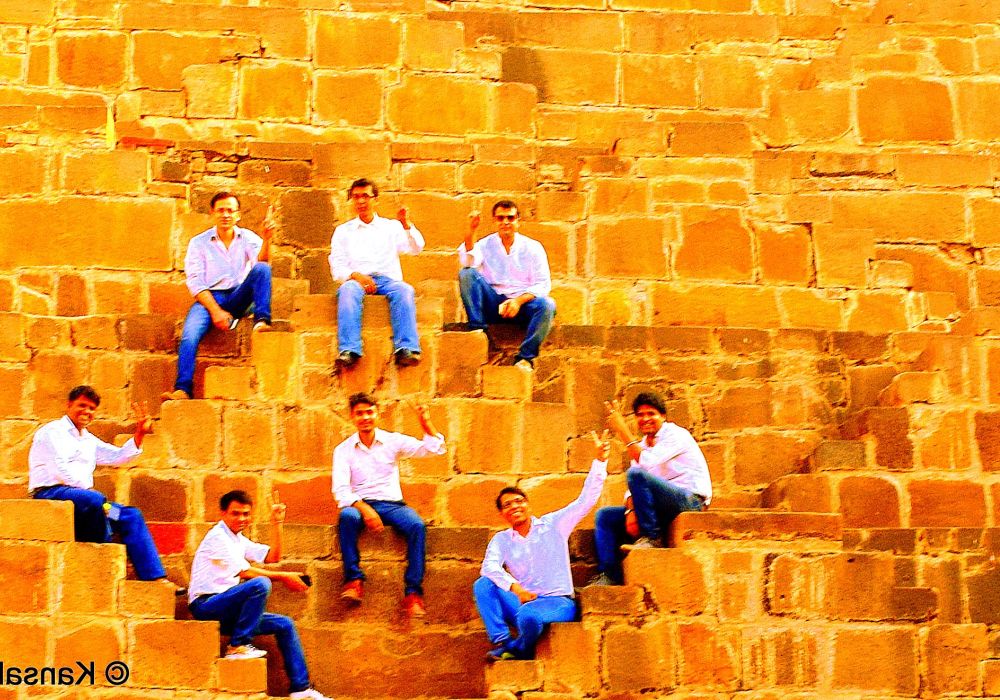
The Not-To-Do List That Led To Founding A Business
“Ruchir and I always wanted to work together,” shares Shashank. The duo became friends around 2003 when Shashank was working the corporate grind and Ruchir was building his BPO business. “We kept talking about it on and off but it was only a chance meeting in Lisbon in 2015 that sparked it all off.” They actually ended up making a Not To-Do list when they brainstormed for potential ideas.
They did not want a business that required inventory (fixed assets), employed a large number of people and shouldn’t be ecommerce, or a foodtech venture. But they did want to build something that was platform-driven and leveraged the more than 300 Mn Indian mobile population. “We wanted to build for the masses. We understand the value of commerce, but at the same time we were also looking to add social value and give back to the community,” adds Shashank.
And it was Ruchir who actually stumbled, or rather drove, to the idea that turned into BYKUP as it is today.
“I am a huge golfing enthusiast. And one time, when I was going to a game at the local golf course in Jaipur, I met a random commuter who wanted to reach the same place as me. I gave him a lift and that was when it hit me, ‘Could I find out if this random commuter was going in the same direction as me, in real-time or at a pre-scheduled time?’ And so the idea for the company was born – connecting people from point A to point B in real-time,” says Ruchir.
They were very focussed on differentiating themselves from existing bike taxi apps and ride-hailing apps. “Companies such as Uber are trying to disrupt the taxi industry, we wanted to complement the two-wheeler industry. They are essentially for the metros, while we have made a deliberate decision to stay away from metros for now. Uber is also about the fixed asset which generates income, we aren’t.”
Ruchir explains this point by talking about the Uber business model. The car (fixed asset) comes with a driver who drives the rider from Point A to Point B, making a certain percentage of income along the way. By contrast, BYKUP’s business model looks to turn a dead seat (the empty backseat of a two-wheeler) into a supply-demand industry by joining two commuters on the same journey and monetising this experience. “It’s what Airbnb did to the room-sharing industry – personalised it by opening up a new and trusted avenue of experience and income for the world.”
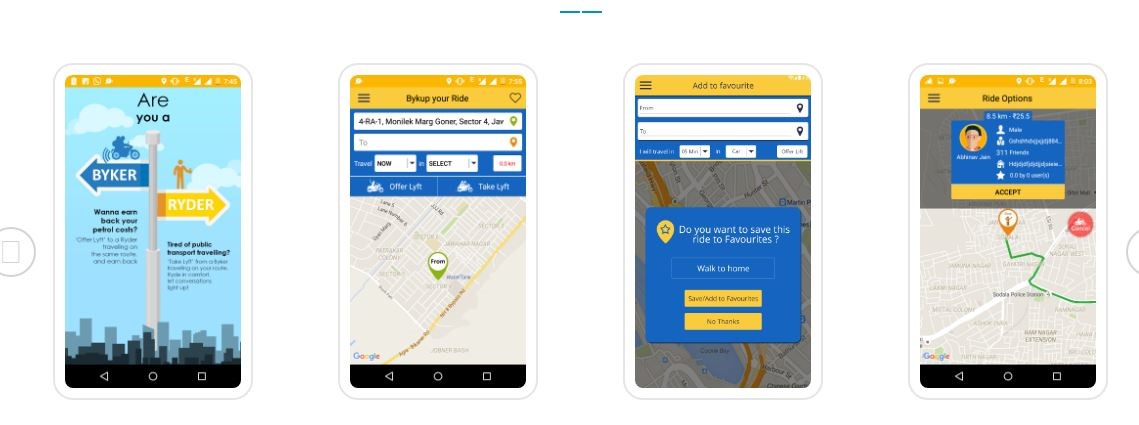
Using Algorithms To Matchmake Daily Commutes
BYKUP’s app works on a simple process – once it is downloaded by the user (a potential rider or biker), they can register on the platform. After a three-step verification process including the vehicle number, the next step is to add the arrival-destination points of the journey to schedule your daily commute.
“Our in-built algorithms takes over the process and proceeds to match the two using a variety of different parameters such as GPS, mapping for route optimisation and even minute details such as how many miles the biker is willing to go out of his way,” says Shashank. The match takes place within a one-mile radius, so as to increase convenience for the users.
Shashank also talks about the transparency aspect of the platform and technology. As per him, most of the ride-hailing apps have two apps – one for the drivers and one for the user. “Our app is the same for both riders and bikers. It helps in building trust when you can see the profile of the person you’re going to be sharing your daily ride with.” Shashank also reveals that the app has a built-in mutual friends feature – wherein the rider and biker can check to see if they have any friends in common, adding to the trust factor.
They also candidly talk about the skewed male-female ratio in users and riders: 90%-10%. So, the company ensures that user safety is taken care of by matching according to genders too.
The motorbike driver can do 2-4 rides a day to ensure cost recovery in relation to service provided. “The average ride cost is INR 2.30/km. Our suggestive price is INR 3/km with cost and time considerations,” says Shashank. He also adds that the platform will take a percentage of the fee charged, but for now, the money for the ride goes directly to the bikers in full.
The founders do reveal that the company has managed to amass 100K users (32 K bikers) till March 2016, within eight months of operation. While the app is currently free for use, the business model the company intends to follow is a platform fee to be charged to all users. “At this point, we are looking at reaching critical mass and focussing on expansion and scale, fine-tuning the product,” Ruchir adds.
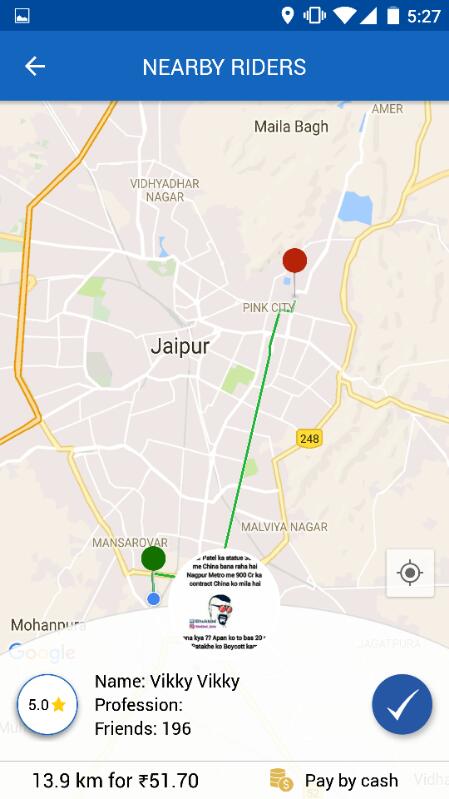
Becoming The Go-Jek Of India While Combating The Bike Taxi Hex
Much like hyperlocal and foodtech in 2015, bike pooling startups in India have seen a massive decrease in user retention and have been forced to down their shutters, as per this March 2017 TOI report. This includes names such as Headlyt, Heybob, Zingo, Dot, TuWheelz, Rideji. A few others such as MTaxi and Bikxie have pivoted to focus on deliveries. There are funded startups – Rapido – who have such investors as Google’s Southeast Asia and India VP Rajan Anandan, Hero Motorcorp Chairman Pawan Munjal. Fellow startup Baxi has raised INR 9 Cr from Dalmia Group, HT Media and angel investors. Uber’s UberMOTO, launched in October 2016, failed to find significant traction in Faridabad as per VCCircle.
But both Rapido and Baxi defend their position by citing governmental support and focussing on offline operations for their funding and model success.
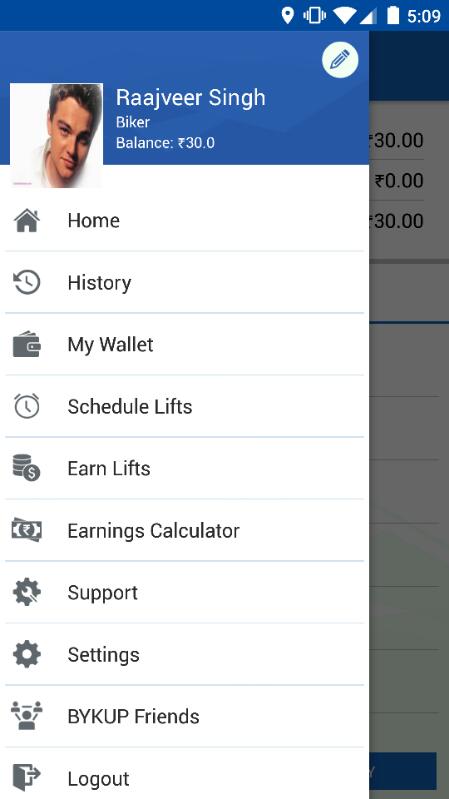
In such an uncertain atmosphere it behooves us to ask the rationale behind starting up in the bikepooling space. The founders cite Southeast Asian unicorn Go-Jek as the best example of how bikepooling is a viable business model – both from a user acquisition and monetary standpoint.
“Indonesia has always had a culture of ojeks – bikes used for commercial purposes – and so the culture already existed for a business to take off. In India, two-wheeler sharing has to become commercially, socially and culturally acceptable in order for the vertical to gain legitimacy and traction,” Shashank says candidly.
Ruchir adds that these bike-taxis have shut down because they have tried to follow the ride-hailing model of doing business – turning a fixed asset into a source of income. “A motorbike driver can’t drive for eight hours in a day every day for two months. His back will give out. Then what? Also, giving discounts is not the best way of acquiring users. Brand loyalty cannot be created by giving discounts – users will jump ship the minute someone else gives more cashback or a better discount. The product has to stand on its own merit because it is affordable, convenient and solves a real need.”
It is perhaps for this reason that the duo is emphatic about terming BYKUP as a ‘bikepooling’ service and not a bike taxi. It is also why they are insistent on pushing the service for the bikers as a source for second income. Car-hailingg apps are following a straight commercial model of doing business. They have created an artificial supply for acquiring drivers (through incentives, perks and schemes) leading to the market being crowded. But when the market will rationalise as all markets are bound to, the funded companies will need more than deep pockets to compete with the supply-demand issue.”
And then, we come to rural-urban demographics. Commuters in metropolitan areas value time over money. As per the founders, they are willing to shell that extra INR 50-INR 100 in order to flag a cab and get to their destination in the quickest, most hassle-free manner possible. Not so in Tier II and below areas.
Where cars are still considered a ‘family vehicle’ and bikes are more easily available as a mode of transport, both because they are cheaper and more efficient in getting around non-connected areas.
“In 2016, approximately 16 Mn two-wheelers were sold, with 1 Mn added on a per year basis. 600 Mn Indians from rural areas are going to migrate more urban areas and they all come from the small town – buying a bike, zipping along wherever they want to go in a moment and not worry about rising petrol costs etc. We are banking on this culture of using bikes to turn into bike-sharing adoption and create a solid base of users for us,” says Shashank.
Thus, BYKUP is targeting the emerging 18-30 population from non-urban India, the 600 Mn who are poised to come into their own – spend wise and decision making wise. They are looking at places – about 1 Mn-4 Mn in population – which suffer the same traffic gridlock problem and don’t have public transport alternatives available in mainstream cities such as Mumbai, Delhi etc. So their future plans include wanting to expand to 30 (non-metro) cities across India in the foreseeable future.
They are also eyeing the global economy with a Master List of 100 cities in Asia, Africa, South America, and Europe.
Perhaps, this is why the duo has decided to expand to all their target cities at the same time instead of capturing one city at a time. For a company that began as a lunch-time conversation between two old friends, the road ahead seems infinite, even if filled with speed bumps.
Editor’s Note
Unlike Asian and American nations, bike-sharing in India is not as popular as ride-hailing, probably due to the inherent trust issues flaring up from sharing two seats on a moving vehicle. This coupled with the heavy discount pricing as well as commercialising the use of two-wheelers has resulted in a downturn of startups in this sector.
ByKUP seems to have understood the need to leverage second tier cities which also face the same gridlock traffic problems as faced by metros, but with a relatively weaker public transport system. Then too, there is recently passed government regulation that has been implemented in states like Rajasthan, allowing for the running of bikes as commercial vehicles. All these reasons and BYKUP’s idea of waiving the platform fee to onboard users looks to be paying off.
But in a culturally-minded country like India, where even proven giants Ola and Uber had to rollback their bike taxi operations, it remains to be seen if the nascent startup can achieve critical mass and keep expanding in all the different cities it is looking to go active in, in a relatively short amount of time.
[BYKUP is part of Inc42’s 42Fellowship – a year-long fellowship programme for India’s top growing and upcoming startups with the aim to build a close-knit community who can help each other multiply their impact.]



